Imam Jamal Rahman
Mystery, Beauty and Bewilderment in Islam
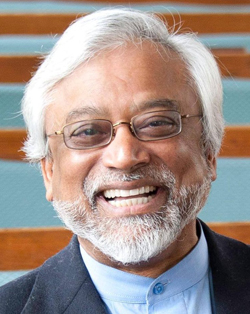 Jamal will offer reflections on the mystifying enigma of our sojourn on earth. We arrive here without any mission statement; none of our divine revelations come with footnotes. In the midst of strife and planetary degradation, God remains invisible and unknown and our afterlife is wrapped in mystery. Jamal will glean wisdom from the Qur’an, Hadith, and Sufi teachers to help make our shared journey meaningful, fulfilling and joyful.
Jamal will offer reflections on the mystifying enigma of our sojourn on earth. We arrive here without any mission statement; none of our divine revelations come with footnotes. In the midst of strife and planetary degradation, God remains invisible and unknown and our afterlife is wrapped in mystery. Jamal will glean wisdom from the Qur’an, Hadith, and Sufi teachers to help make our shared journey meaningful, fulfilling and joyful.
Imam Jamal Rahman is a popular speaker on Islam, Sufi spirituality, and interfaith relations. Along with his Interfaith Amigos, he has been featured in the New York Times, CBS News, BBC, and various NPR programs. Jamal is co-founder and Muslim Sufi minister at Interfaith Community Sanctuary and adjunct faculty at Seattle University. He is a former co-host of Interfaith Talk Radio and travels nationally and internationally, presenting at retreats and workshops. Jamal's passion lies in interfaith community building. He remains rooted in his Islamic tradition and cultivates a "spaciousness" by being open to the beauty and wisdom of other faiths. Through an authentic and appreciative understanding of other paths, Jamal feels that he becomes a better Muslim and a more developed human being. This spaciousness is not about conversion, but about completion. Jamal is also an author of several books. Since 9/11 he has been collaborating with Rabbi Ted Falcon and Pastor Don Mackenzie. Affectionately known as the Interfaith Amigos, they tour the country sharing the message of spiritual inclusivity.


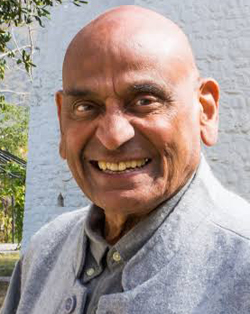 Religions organized around a particular historical or mythological event or person naturally tend to become exclusive by insisting that they alone have the path to the Real. Such religions have done more harm to spiritual search than any other organization. God, or Truth, cannot be Christian or Muslim or Hindu. It is important for a spiritual seeker to be free of attachment to any specific and exclusive dogma. A pilgrim soul needs to follow a path to the Sacred that transcends world religions. Santana Dharma (Eternal Law), labeled as Hinduism, has some universal features that will be addressed during this presentation.
Religions organized around a particular historical or mythological event or person naturally tend to become exclusive by insisting that they alone have the path to the Real. Such religions have done more harm to spiritual search than any other organization. God, or Truth, cannot be Christian or Muslim or Hindu. It is important for a spiritual seeker to be free of attachment to any specific and exclusive dogma. A pilgrim soul needs to follow a path to the Sacred that transcends world religions. Santana Dharma (Eternal Law), labeled as Hinduism, has some universal features that will be addressed during this presentation.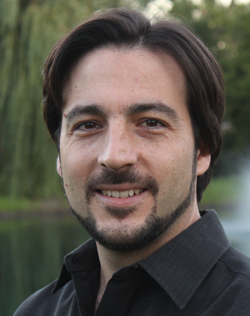 From the time of its founding, the Theosophical Society asserted that freedom of thought is essential in the search for truth, and therefore sought to support the spiritual life of all its members, regardless of their beliefs. Although Theosophical literature presents a wide range of spiritual ideas and practices, no particular dogma or practice is prescribed by the organization as a panacea for all individuals. In this program, we will explore the integrative view presented by Theosophy, which recognizes that each individual is unique and yet, their spiritual search is shared.
From the time of its founding, the Theosophical Society asserted that freedom of thought is essential in the search for truth, and therefore sought to support the spiritual life of all its members, regardless of their beliefs. Although Theosophical literature presents a wide range of spiritual ideas and practices, no particular dogma or practice is prescribed by the organization as a panacea for all individuals. In this program, we will explore the integrative view presented by Theosophy, which recognizes that each individual is unique and yet, their spiritual search is shared.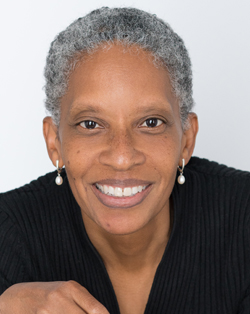 What public figures do you point to as examples of really good listeners? In the soundscape of U.S. culture, there seems to be little to no "silencescape"—the absence of communication specifically for the purpose of taking in, understanding, appreciating, and perhaps being changed by what has been consumed. In this presentation, pastoral counselor and artist Pamela Ayo Yetunde, a Community Dharma leader and Zen Buddhism student, will share what she has learned from her meditation practices to support deeply listening to her clients. She will use teachings from the Noble Eightfold Path to suggest an additional path factor, Right Listening. Practicing Right Listening in the silencescape can help advance a culture of mutual recognition and interfaith appreciation.
What public figures do you point to as examples of really good listeners? In the soundscape of U.S. culture, there seems to be little to no "silencescape"—the absence of communication specifically for the purpose of taking in, understanding, appreciating, and perhaps being changed by what has been consumed. In this presentation, pastoral counselor and artist Pamela Ayo Yetunde, a Community Dharma leader and Zen Buddhism student, will share what she has learned from her meditation practices to support deeply listening to her clients. She will use teachings from the Noble Eightfold Path to suggest an additional path factor, Right Listening. Practicing Right Listening in the silencescape can help advance a culture of mutual recognition and interfaith appreciation.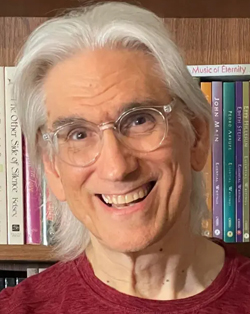 Christianity in its institutional form seems to emphasize God as wrathful, humans as sinful, and Jesus as a suffering victim whose painful crucifixion is required to call off God's anger. Frankly, it's a disturbing spiritual model that many people today conscientiously reject. What's not so well known is how the mystical tradition within Christianity subtly undermines the "sinners in the hands of an angry God'' model in favor of spirituality as a joyous adventure of deepening union with divine love. In this presentation Carl McColman, author of
Christianity in its institutional form seems to emphasize God as wrathful, humans as sinful, and Jesus as a suffering victim whose painful crucifixion is required to call off God's anger. Frankly, it's a disturbing spiritual model that many people today conscientiously reject. What's not so well known is how the mystical tradition within Christianity subtly undermines the "sinners in the hands of an angry God'' model in favor of spirituality as a joyous adventure of deepening union with divine love. In this presentation Carl McColman, author of